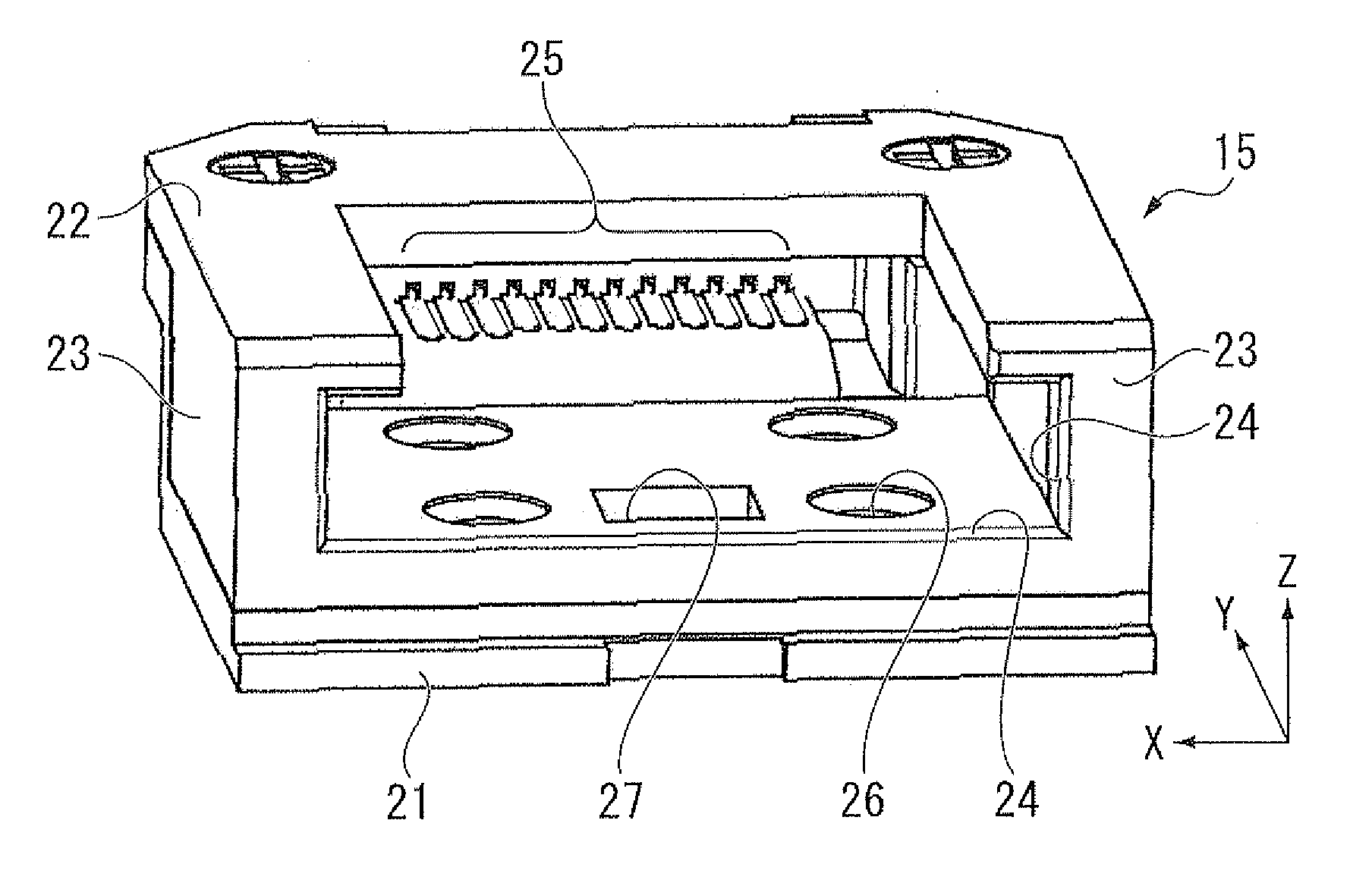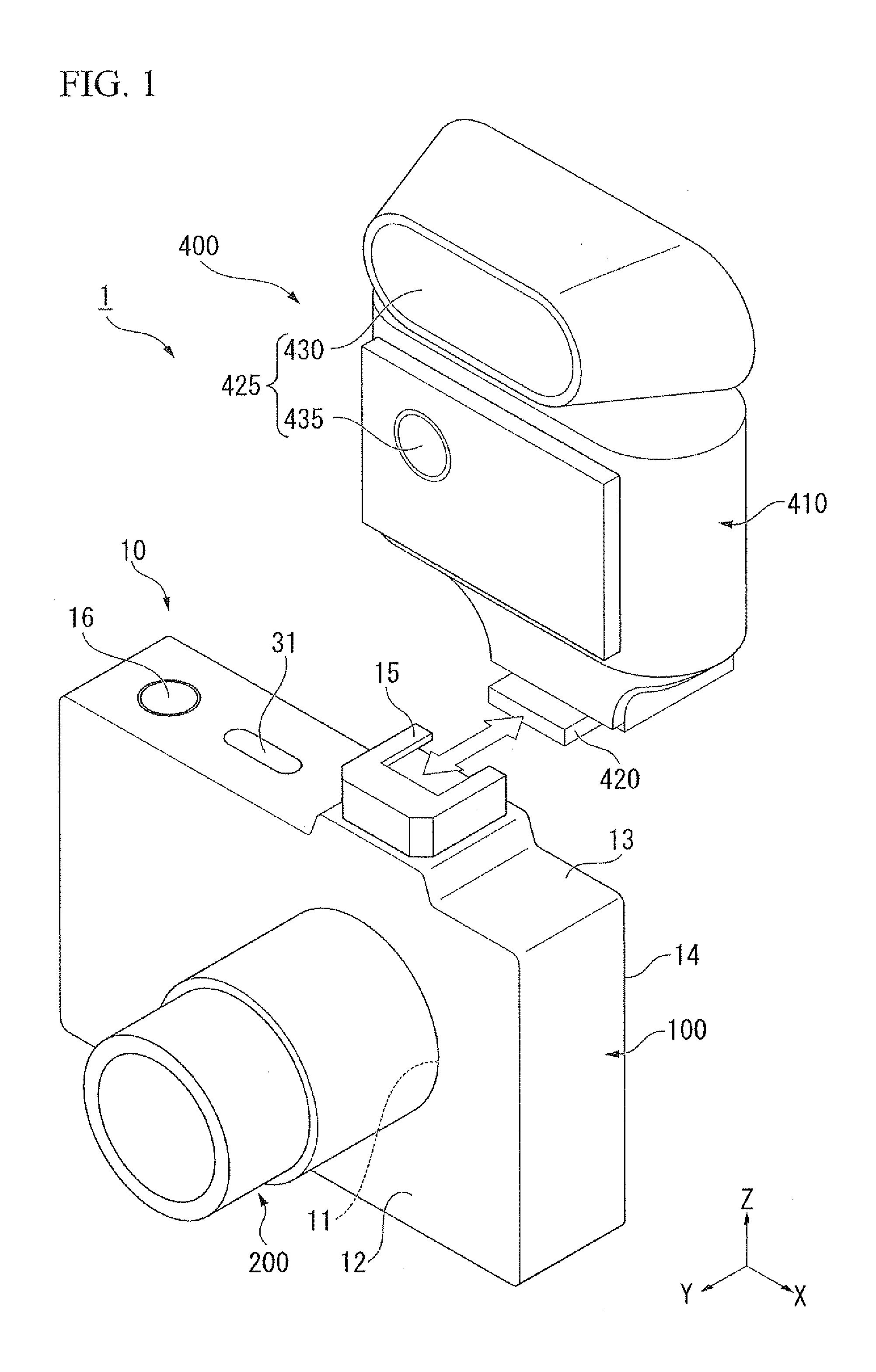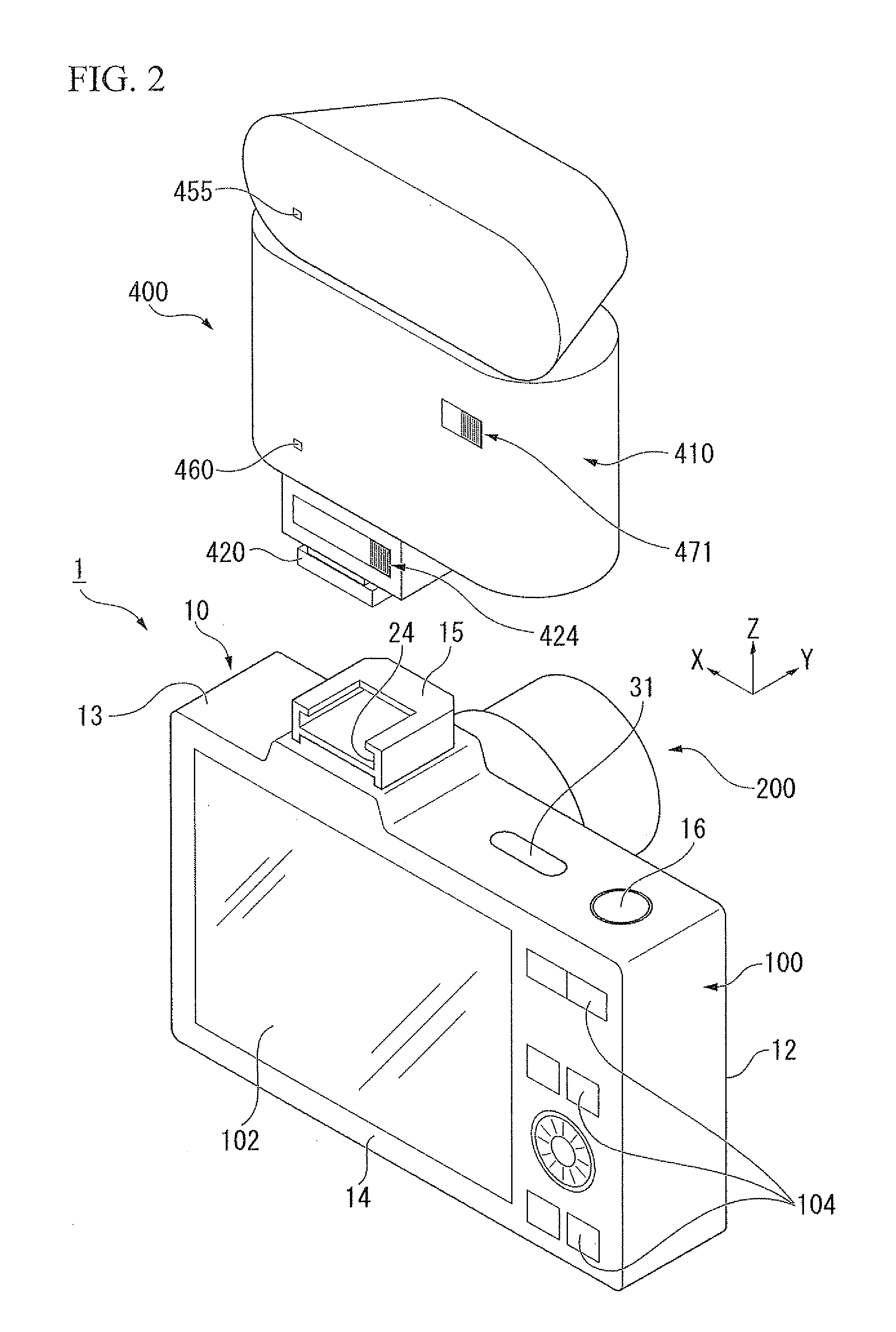Accessory, camera, accessory shoe, and connector
a technology for accessories and accessories, applied in the direction of television systems, coupling device connections, instruments, etc., can solve the problem of low usability of the camera system, and achieve the effect of enhancing the convenience of an accessory, a camera, an accessory shoe and a connector
- Summary
- Abstract
- Description
- Claims
- Application Information
AI Technical Summary
Benefits of technology
Problems solved by technology
Method used
Image
Examples
first embodiment
[0059]Exemplary embodiments of the present invention will be described below in detail. In the following description, components having the same or similar structure or functions are assigned the same reference numerals and signs, and the description thereof may be simplified or omitted.
[0060]FIG. 1 is a diagram illustrating the appearance of a camera system 1 according to the present embodiment. FIG. 2 is a diagram illustrating the appearance of the camera system 1 when viewed from the side opposite to FIG. 1.
[0061]The camera system 1 shown in FIGS. 1 and 2 includes a camera 10 and an accessory 400. The camera 10 includes a camera body 100 and an image capture lens 200. The accessory 400, for example, has a light-emitting function, and is an external illumination device (attachable to and detachable from the camera 10) used to illuminate a subject. The camera 10 can communicate with the accessory 400 to control the accessory 400. The camera system 1 captures an image of the subject...
modified example 1
[0435]First, Modified Example 1 will be described. FIG. 25 is a diagram illustrating a procedure of processes in an initial communication sequence of Modified Example 1. A series of processes in Modified Example 1 is different from a series of processes described with reference to FIG. 12, in that after the process of step S204, it is determined in step S260 whether information is received normally from the accessory control section 440.
[0436]In Modified Example 1, subsequently to the reception of the accessory initial state information from the accessory control section 440, for example, in step S204, the camera control section 170 determines whether information is received normally from the accessory control section 440 (step S260).
[0437]Explaining for more details, in step S260, when the accessory initial state information received in step S204 includes information (for example, battery presence or absence information and function type information) of items designated by the tran...
modified example 2
[0451]Next, Modified Example 2 will be described. FIG. 26 is a diagram illustrating a procedure of processes in a power supply control of Modified Example 2. A series of processes in Modified Example 2 is different from a series of processes described with reference to FIG. 14, in that after the process of step S250, it is determined in step S262 whether the information is received normally from the accessory control section 440.
[0452]In Modified Example 2, when it is determined in step S250 that the accessory 400 does not have a battery (step S250: NO), the camera control section 170 determines whether the battery “absence” information is received normally in step S262. In step S262, the camera control section 170 determines that the information is received normally (step S262: Yes) when the battery “absence” information is received in step S204, and continues the supply of power to the accessory 400 started in step S103. In addition, in step S262, the camera control section 170 de...
PUM
 Login to View More
Login to View More Abstract
Description
Claims
Application Information
 Login to View More
Login to View More - R&D
- Intellectual Property
- Life Sciences
- Materials
- Tech Scout
- Unparalleled Data Quality
- Higher Quality Content
- 60% Fewer Hallucinations
Browse by: Latest US Patents, China's latest patents, Technical Efficacy Thesaurus, Application Domain, Technology Topic, Popular Technical Reports.
© 2025 PatSnap. All rights reserved.Legal|Privacy policy|Modern Slavery Act Transparency Statement|Sitemap|About US| Contact US: help@patsnap.com



